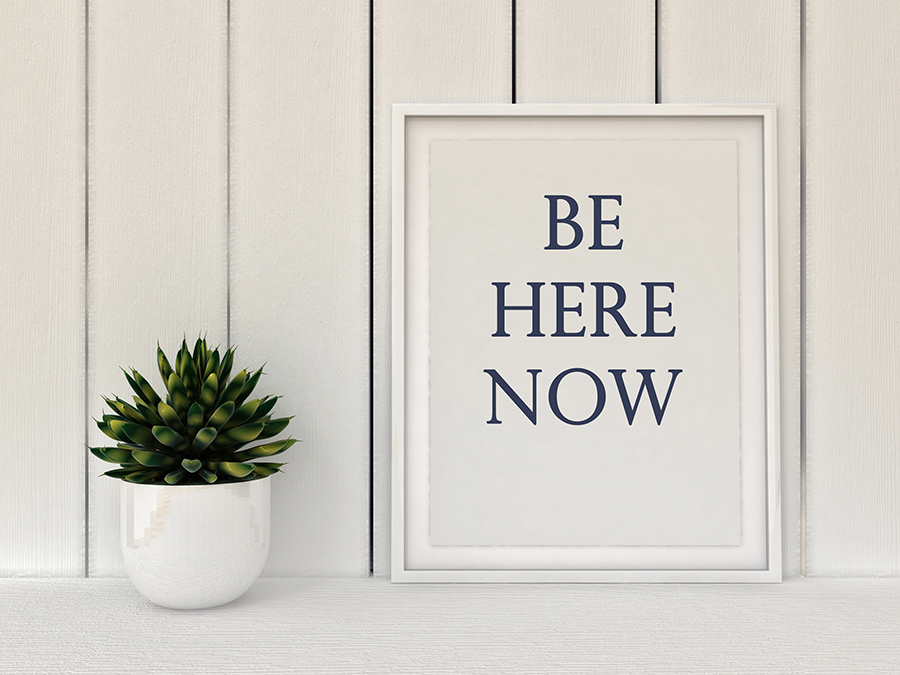Self-Care and Mindfulness: Tools for Your Mental Health Toolbox

Photo Credit: Getty Images
Today, words like “self-care” and “mindfulness” appear in headlines, product descriptions and bestselling books more often than ever before. And while the thought of taking better care of yourself and having peace of mind seems compelling enough to perk up at every mention, you need to know what you’re looking for before you pick a solution.
Do you want to build new resources that help you break from your daily routine or promote a better work/life balance? If you feel physically worn too thin, self-care is a good option to explore. “When you think of self-care, you think about taking a break from work, getting more sleep, things that give you time to refresh and take a step back from the demands of your life,” says Jessica Kendorski, Ph.D. and Director of the MS School Psychology Program at Philadelphia College of Osteopathic Medicine. “Mindfulness, on the other hand, is more about changing your perspective on the outside world and your ‘inner world’; it can be part of your self-care routine, but it is different,” she says.
Mindfulness is about being fully present and aware in the current moment, and aware of our reaction to thoughts and situations. It’s working on yourself from the inside out versus the outside in. If you’re looking to improve your relationship with your thoughts and gain a more balanced perspective, read Dr. Kendorski’s advice on mindfulness, best practices and quick tips to develop your own healthy routine.
What you need to know about mindfulness
At its core, mindfulness is about paying attention to what’s going on in the moment in a purposeful way. It’s about noticing a thought and watching it float away, recognizing that fleeting thoughts do not control you. It’s about grounding yourself in more concrete things and focusing on what’s happening now, versus what’s happened in the past or what might happen in the future.
How meditation can increase your practice
If you want to start being more mindful, meditation is how you practice that. Similarly to working out your body when you want to be more physically healthy, meditation works out the mind and thought processes. A lot of people believe meditation is just sitting still and turning off your mind, which makes people hesitant to try it—they think they can’t do that. But there are different types of meditation.
How to ease into meditation, and where to start
I tend to recommend guided meditation to people who are just starting out. There’s also transcendental meditation, which is repeating a word or a mantra over and over again. And there’s guided imagery meditation, where someone guides you to think about a place where you feel calm and safe, and you imagine yourself there.
Yoga: the intersection between mindfulness and self-care
You will definitely see the aspects of relaxation in the same way you would with some of your self-care practices, like getting a massage, for example. That’s because some of the different poses you take are incorporating your nervous system. When yoga is practiced through mindful movements—that is, you’re focused on and fully engaged in the present moment—you can bring your mind back to exactly where you are in that moment. In that way, you can strengthen that mind-body balance.
Therapeutic approaches to mindfulness
Cognitive Behavior Therapy (CBT) is very popular because it has strong research-backed results for a variety of mental ailments, including anxiety and depression. CBT is all about changing your cognition, or your inner dialogue. It’s about modifying dysfunctional thought processes to build a better mental toolbox, which can help you understand your life situation from a more objective perspective.
Acceptance and Commitment Therapy (ACT) includes some of the same techniques as CBT, but is less about changing your thoughts and more about recognizing those thoughts and how you respond to them. The core of ACT stresses the acceptance of thoughts and feelings and the identification of life values. When you are able to identify your inner dialogue and develop a more adaptive response to that dialogue, you are able to “act” more in line with your values, despite challenges.
Quick and easy daily tips
1. Protect your sleep
2. Practice breathing techniques
3. Turn regular activities, like walking, into mindful moments
4. Forgive yourself
5. Write down what you’re grateful for
6. Practice preventive health
For more information about Philadelphia College of Osteopathic Medicine and their approach to holistic medicine, visit pcom.edu.
This is a paid partnership between Philadelphia College of Osteopathic Medicine and Philadelphia Magazine
